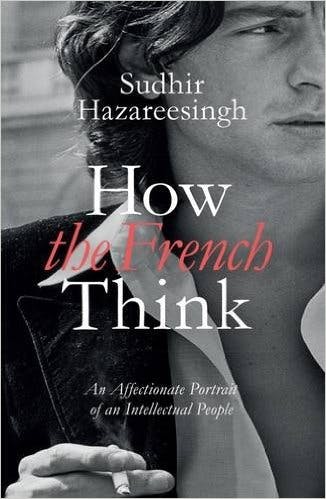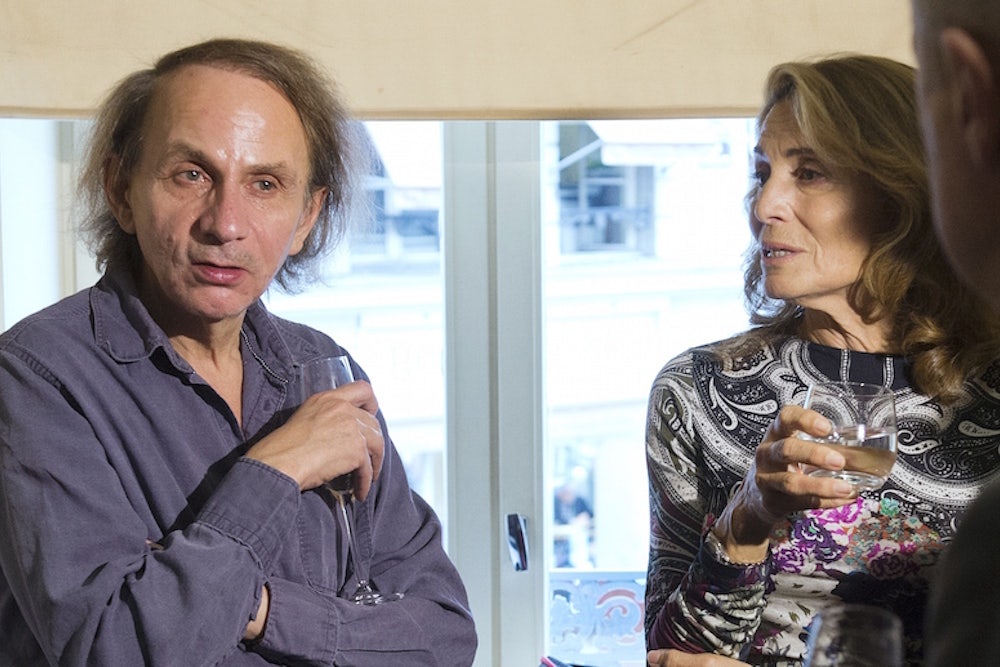It shouldn’t be too much of a spoiler to note from the start that the vast majority of the excitement and romance in How the French Think: An Affectionate Portrait of an Intellectual People, Sudhir Hazareesingh’s encyclopedic new intellectual and cultural history of France, comes well before the present moment. Alas, for even a semi-devoted Francophile it’s hard not to slip into a declinist funk at the thought of the great nation’s loss of cultural relevance in recent years. Nowhere on the horizon is there a statesman to galvanize the people (let alone other peoples) anywhere near the stature of a Charles de Gaulle, nor an original thinker of the international reputation and moral import of a Jean-Paul Sartre. A path-breaking artist along the lines of Marcel Duchamp is unimaginable. Most English readers have still never even heard of Patrick Modiano, last year’s recipient of the Nobel Prize in literature. In fact, the only consistently translated literary export the country has produced in the past two decades is the morose Michel Houellebecq, perhaps the least dashing French man of letters ever, who for over a year now has taken to walking around in public without his teeth.

Hazareesingh, a Mauritius-born fellow in politics at Oxford, who splits his year between England and France, locates the last notable instance of French grandeur parading un-self-consciously on the world stage in the aristocratic ex-foreign minster Dominique de Villepin’s February 2003 speech at the United Nations Security Council, on the eve of the invasion of Iraq. “We are the guardians of an ideal, the guardians of a conscience,” Villepin, a poet in his free time, proclaimed. “The heavy responsibility and the immense honor which is ours should lead us to give priority to peaceful disarmament.” For Hazareesingh, this highfalutin oratory, which was “broadly welcomed across the world,” also displayed “a seductive masculinity and rhetorical verve … an appeal to reason and logic … a sense of articulating an age-old wisdom resting on centuries of often painful historical experience; and a confident optimism, underpinned by a belief in France’s cultural superiority” that is all indubitably Gallic.
That is because “French culture possesses a fundamental unity, which manifests itself in the reproduction across generations of certain basic assumptions and styles of thought,” he argues. And the indispensable figure here is the 17th-century philosopher Descartes, “the emblem of republican rationalism,” whose deductive path to a metaphysics of dualism—“I think, therefore I am”—infuses in ways both subtle and obvious the collective mentality to this day. In Descartes, we can find all of the stereotypical French habits of mind: the penchant for speculation over empiricism, a love of paradox, a movement from the particular to the universal, and above all, “the obsession with dividing things in two.” It doesn’t hurt that the philosopher possessed no small measure of swagger in the bedroom, either: he was famous for being the “lover of a queen.”
How the French Think is structured as a series of deeply informed essays that deal in roughly chronological progression with the key events and ideas from the Grand Siècle—roughly the same period of time that Louis XIV reigned—through the triumphs of the Revolution and the Enlightenment. The essays encompass the intellectual and cultural achievements of the mid-20th-century post-war years and the twilight of colonialism, up through Jean Monnet and the creation of the European Union, and culminating in the melancholic, xenophobic inward turn of the contemporary era.
This last phase is unique in that it is comprised of a cast of uninspiring national leaders across the political spectrum and minor writers, who are scarcely known abroad, such as Éric Zemmour and Alain Finkielkraut. These two are more like pamphleteers, hyperbolic reactionaries who mostly do their best William F. Buckley, Jr. impersonations, vainly standing athwart history, yelling Stop, while waxing nostalgic about past glories and fretting over the twin incursions of a global culture organized around the English language and an interior ethnic dilution through Muslim immigration. When a work of genuine distinction does break out today—as in the case of Thomas Piketty’s surprise runaway success, Capital in the 21st Century—it tends to be in a comparatively narrow, technical field, such as economics.
To the question of what can possibly explain such a precipitous decline, Hazareesingh doesn’t offer a catchall answer, but he does work through a comprehensive set of contributing factors. Hovering above everything is, of course, the devastating assault on national pride that the Germans inflicted during World War II, and that the Americans, in the role of benefactors, couldn’t help but exacerbate. “De Gaulle’s greatest fear, which he devoted his life to exorcising,” writes Hazareesingh, “was that the French nation’s historical destiny would be extinguished.” It’s a big reason why the great man admitted preferring “uplifting lies to demeaning truths.” But by the 1980s, the latter were winning decisively, as the myth of the French as a “nation of resisters” was at last exploded, and members of the Vichy regime were prosecuted for crimes against humanity even as the breadth of Vichy-sympathizing among public figures (from President Mitterand to Coco Chanel) became impossible to deny.
At the same time, “the ideological retrenchment of the Left in France, followed by the collapse of communism across Europe, marked the end of the long cycle of historical optimism initiated in the 1820s—a dream that had been successively carried by progressive prophets, republican pedagogues, and Marxist eschatologists.” In the academy, with the primacy of theory—the “structuralism” and “post-structuralism” of such diverse thinkers as Lévi-Strauss, Barthes, Lacan and Foucault, and ultimately the “deconstructionism” of Derrida—French philosophical thought had exhausted itself at home and sabotaged literature departments across the Western hemisphere, especially in the United States.
If some of this sounds dry, Hazareesingh has a gift for distilling mounds of information into clear, engrossing prose. This is above all a convivial book, true to its subtitle though not without a finely tuned bullshit detector. It can also be wryly funny, from passages on Mitterand’s reliance on an astrologist for guidance on key geopolitical decisions (signing the Maastricht Treaty, for one), to the French philosopher Yves Roucaute’s exultation of the sandwich jambon-beurre (a ham sandwich) and the café it’s typically served in, as the epitome of liberté, egalité et fraternité. Hazareesingh gets his own shots in, too: “France is one of the few countries in the world (perhaps along with North Korea) where a short book can plausibly be published with the title We Must Love the State.”
Ultimately, the intellectual history of France is an embarrassment of riches. There are simply too many important moments, ideas and figures to choose from. Still, it’s a shame that writers of the stature and impact of Montaigne and Camus are given such short shrift; and that deeply Gallic eccentrics like Françoise Sagan and Boris Vian aren’t even touched on at all. Regardless, what one comes away with is the unshakable sense that however they do it, the French really do think differently than we do—and this is what we love about them.
